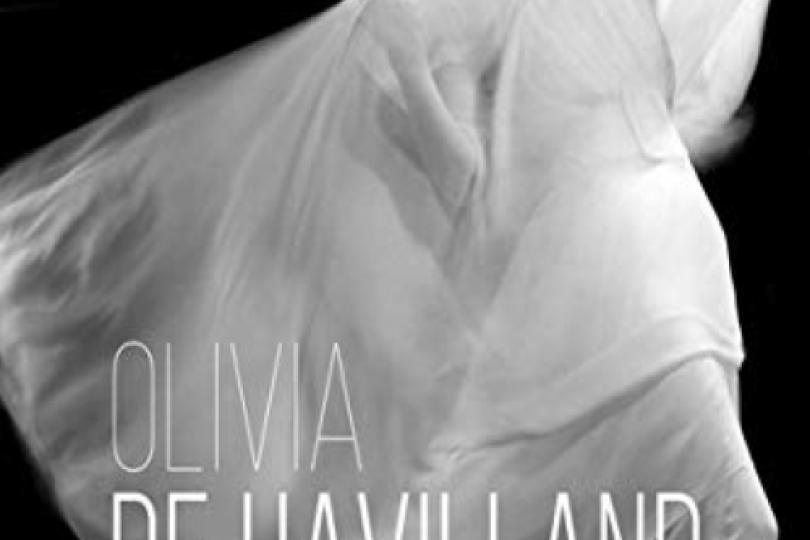"Olivia de Havilland: Lady Triumphant"

Even though the need for sheltering-in-place has loosened, many of us are filling the inability of going to the library and bookstores by reading or buying items online to read. One of the recent additions to my library is a biographical memoir of the only remaining star of a great American classic that’s undergone some controversy of late.
Twin Cities author and actor Victoria Amador possesses a half-century of correspondence from Dame Olivia de Havilland, a dual Oscar winner, honored as a Dame of the British Empire (2017). She was last living star of Gone With the Wind (Dame de Havilland celebrated her 104th birthday on July 1 and died on July 26, 2020).
Amador’s biographical memoir Olivia de Havilland: Lady Triumphant focuses specifically on de Havilland’s triumphs (and tribulations) throughout her life. Citing, among other sources, personal correspondence (letters, cards and emails), Amador’s book is divided into eleven chapters, each of which examines the actress’ personal and professional life.
The Early Years
Whenever I read what I’d describe as a standard biography, I usually skim the opening chapters. Not so here. To gather information she didn’t have, Amador submitted questions to de Havilland, who answered them with the aid of an assistant. By using this method, the author creates a fascinating account, which helps put the subjects’ life and career into perspective.
Havilland was born in Japan, but raised in California and planning a career as a teacher, she received a full scholarship from Mills College. Even after years of making movies, she would sometimes comment that she could easily accept that scholarship and become a teacher.
She was named after a character in Shakespeare’s 12th Night, and while still in her teens, de Havilland was cast in the renowned production of A Midsummer Night’s Dream performed at the Hollywood Bowl in 1935, directed by the legendary Max Reinhardt. It was transferred to the screen with an all-star cast later that year. She signed a contract with Warner Bros., where she was paired with Errol Flynn for several films, including Captain Blood, They Died with Their Boots On and of course, The Adventures of Robin Hood. While there was indeed chemistry between the two stars, their romance was played onscreen.
Amador’s writing style draws us into the book early on and keeps us reading about this great actress and her exciting life!
De Havilland trained by doing, but was frustrated by some of the roles she was offered. Behind Jack Warner’s back, in 1938, she auditioned for and was cast in the role of a lifetime (and the actress’ personal favorite), Melanie Hamilton. David O. Selznick’s screen version of Gone With the Wind remains the greatest epic drama ever made and is the crowning achievement of 1939, considered Hollywood’s Golden Year. Along with Clark Gable, Leslie Howard, Butterfly McQueen and Oscar winners Vivien Leigh and Hattie MacDaniel, the Civil War tale of Scarlett O’Hara, who changes from society belle to breadwinner to survivor shows the War from the southern point of view and is filled with memorable moments, a genuine classic of the era.
The de Havilland Decision
Even with an Oscar nomination, Warner wasn’t forthcoming with better roles, so she took him to court. The de Havilland Decision changed the way studios cast its actors forever. Bette Davis suffered a similar fate, and while the relationship between Warner’s two leading actresses was tepid, they would eventually become good friends and worked together often, the last time in the delightful thriller Hush, Hush, Sweet Charlotte.
The Feud and two Oscars
Feuds between performers are the stuff of Hollywood legend and are generally created by gossip columnists’ pens. Not so that between de Havilland and her sister, Joan Fontaine. There was always rivalry between the two siblings, but it turned vicious after the Oscars. Fontaine won first, in 1942 for her performance in Suspicion. When de Havilland congratulated her sister, she was snubbed. This was exacerbated when de Havilland won the first of her two Oscars in 1947 for To Each His Own. Fontaine tried to congratulate her, only to be snubbed. Her second Oscar came in 1950 when she starred as Catherine Sloper in William Wyler’s exquisite film, The Heiress.
Because Amador had access to letters, postcards and emails, she was able to scrutinize both de Havilland’s professional and personal lives, as the two shared accomplishments and disappointments. Her first, short lived marriage to author Marcus Goodrich gave her a son, Benjamin, who passed on at age 42 from heart disease brought on by treatments for Hodgkin’s Lymphoma. Her second marriage, to Pierre Galante, editor of Paris Match, was also short lived, but they remained friends. Their daughter Gisele, studied law and has worked as a journalist. de Havilland remained in the same house in the Rive Droite section of Paris for half-a-century.
This book was among the nominees for the Pulitzer Prize in Literature this year. A friend contacted her to report that Dame de Havilland passed away on July 26th. Amador is preparing a revised final chapter for the upcoming paperback release of this book.
Olivia de Havilland: Lady Triumphant is a magnificent achievement because it’s both a deeply informative biography of a screen legend and a personal memoir about the friendship between two women, supportive of and caring for one another’s lives. It’s a perfect addition to anyone’s Hollywood history collection.




